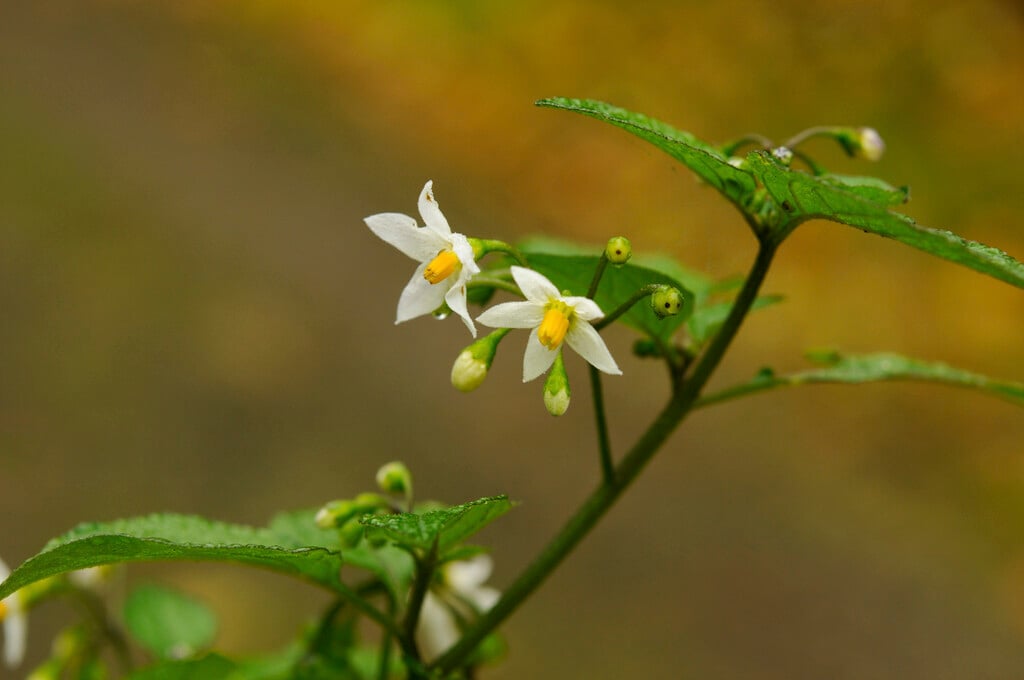Solanum nigrum
black nightshade
A fast-growing annual or biennial with variable habit, often found in woodland or areas of disturbed soil. Leaves are broadly ovate, sometimes with wavy edges. Flowers are small, white and star-shaped, with five petals and prominent yellow anthers, and followed by clusters of round dark green berries that are matt black when ripe
Other common names
common nightshadegarden nightshade
see moregurkamei
houndberry
kangani
kanper makoo
mako
mokoi
morelle
poisonberry
wonderberry
petty morel
Size
Ultimate height
1–1.5 metresTime to ultimate height
1 yearUltimate spread
0.5–1 metresGrowing conditions
Moisture
Moist but well–drainedpH
Acid, Alkaline, NeutralColour & scent
| Stem | Flower | Foliage | Fruit | |
| Spring | Green | |||
|---|---|---|---|---|
| Summer | White Yellow | Green | ||
| Autumn | Green | Green Black | ||
| Winter |
Position
- Full sun
- Partial shade
Aspect
East–facing or South–facing or West–facing or North–facing
Exposure
Exposed or Sheltered Hardiness
H3Botanical details
- Family
- Solanaceae
- Native to GB / Ireland
- Yes
- Foliage
- Deciduous
- Habit
- Bushy
- Potentially harmful
- Pets (dogs): Harmful if eaten - for further information and contact numbers regarding pets, see the HTA guide to potentially harmful plants
- Genus
Solanum can be annuals, perennials, evergreen or deciduous shrubs or twining climbers, with simple or pinnnately lobed leaves and star- or bowl-shaped, 5-lobed flowers with prominent stamens, followed by fleshy fruits
- Name status
Correct
How to grow
Cultivation
Most successful in moist, warm, fertile conditions, less so in dry soil or heavy shade. May overwinter in milder areas. Generally considered a weed for its ability to outcompete neighbouring plants, and for its role in hosting plant pests and diseases
Propagation
Propagates by seed. Seeds remain viable in the soil for some years; cultivating soil may increase seed germination, but enables seedlings to be removed when small
Pruning
Remove before flowering to prevent spread
Pests
Generally pest-free, but may provide an alternate host for a range of nematodes that may be harmful to other plants, as well as for thrips
Diseases
May be susceptible to honey fungus (rarely), tomato leaf mould and tomato viruses
Get involved
The RHS is the UK’s gardening charity, helping people and plants to grow - nurturing a healthier, happier world, one person and one plant at a time.
